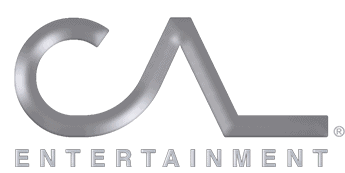Pablos is Exclusively Represented by CAL Entertainment
To succeed in today’s climate, businesses need to get out of their comfort zones and embrace the unknown, said futurist Pablos Holman, who was in Bend on Thursday as keynote speaker for the annual Economic Development for Central Oregon luncheon.
Taking risks and being willing to make a mistake is the spirit of entrepreneurship, Holman said.
“But don’t be wrong enough to sink the company,” he said. “In a community, you need to get people together to support each other, and you need people to test a product, help and invest in the company.
“What I try to show is that the downside isn’t as bad as you’d imagine.”
Working together, sharing knowledge as a community will help your business, Holman said during his talk at Riverhouse on the Deschutes.
Roger Lee, CEO of Economic Development for Central Oregon, said that’s the goal of his organization. The region has seen growth from new businesses.
Looking back at EDCO’s accomplishments, Lee said that from 2010 to 2012, the goal was $100 million in new capital investment. In fact that goal was exceeded five times with $576.8 million from Central Oregon projects, which added more than 4,700 jobs, Lee said.
The path to success in the future could meet headwinds, Lee said. Some are macro like an aging U.S. workforce, the national business cycle and the impact of artificial intelligence, machine learning and automation, Lee said.
“Despite all these challenges, the fundamentals that make Central Oregon among the most attractive areas to live in the country are still intact,” Lee said.
Holman, who calls himself a notorious hacker, inventor and entrepreneur, works as an inventor at Intellectual Ventures Lab in Bellevue, Washington, where he helps build things such as the world’s smallest PC, a brain surgery tool and a laser that can shoot down mosquitoes as part of a program funded by Bill Gates to eradicate malaria.
One of the keys to solving big-picture problems is not relying on directions, but instead attacking all aspects of a protocol, he said.
The future is wide open when it comes to computers, he said. Technology can be applied to sewing machines to eliminate the manual labor of factories in Asia, or driverless trucks to transport goods across the country.
“We can do astounding new things,” Holman said. “We can do better. When you have been successful as a business, industry or institution, in every case evolves an immune system to suppress risk.
“And that’s why big companies suck at innovation.”
Jason Moyer, principal of Cascadian Group in Bend, recalled that his first computer had 8 kilobytes of RAM, and his phone has 500,000 times more memory.
“Given such advances, we’re capable of conducting analyses that weren’t even possible a generation earlier,” Moyer said. “Nonetheless, very little happens in large organizations pursuing ‘incremental’ change.
“Disruption tends to come from younger companies ignoring old constraints, models entirely.”
Innovation, Holman said, comes in versions of an app that can be tried multiple times even before lunch. No longer do companies or developers have to wait months for a product to be launched. Today innovators can roll out of bed, write a bunch of code, put it out on an app and fix bugs all by dinner time.
“We’re testing things all the time to make things better. You have to create an environment to be willing to try things. Every startup is essentially a million-dollar experiment.”

